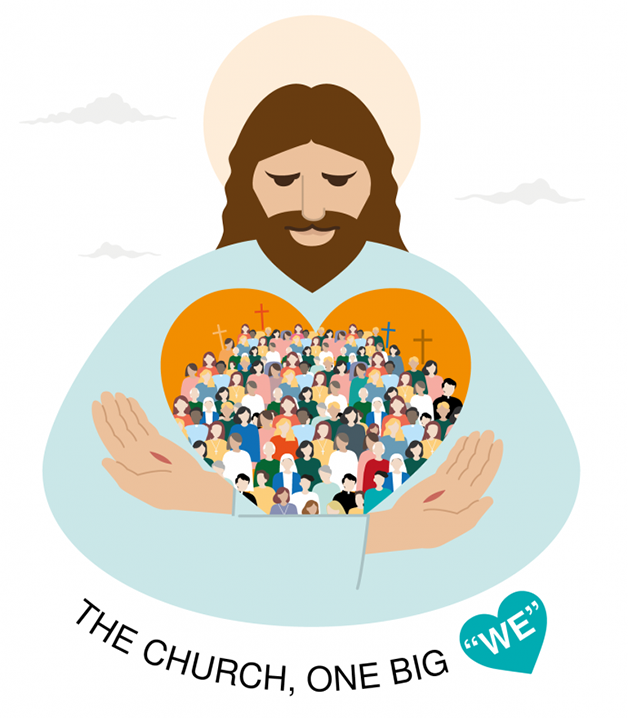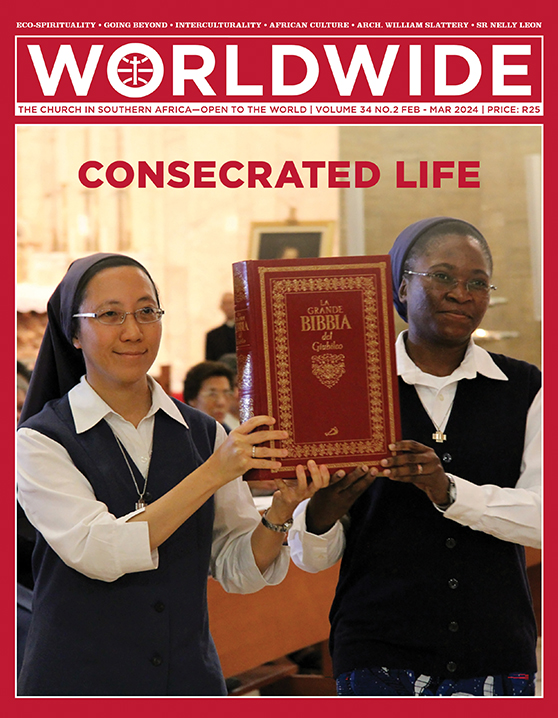
CONSECRATED LIFE
The painting on the front cover entitled “The disciples of Emmaus” reflects our journey of hope. Jesus not only walks with us, but gives us the wisdom to perform our ministries and opens our eyes to see Him in the people that we are serving.
FOCUS • PERIPHERIES
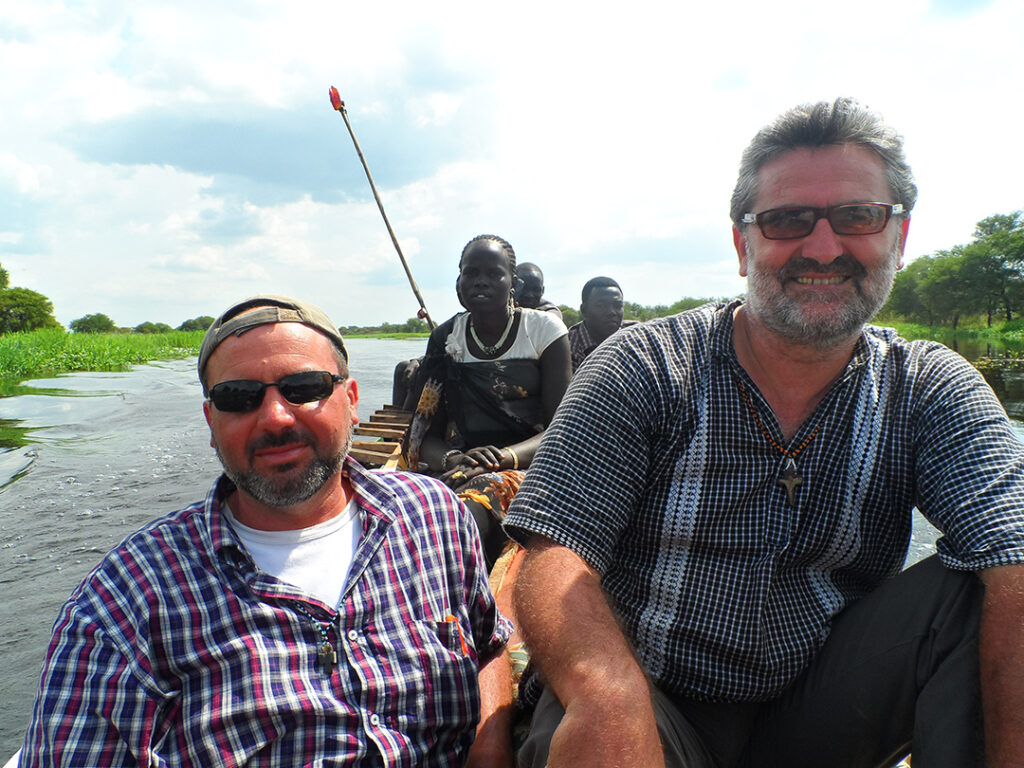
AT THE SCHOOL OF THE POOR
Living among marginalized people matured him as a human being and gave new depth to his missionary vocation. The testimony of a Comboni priest.
BY FR DANIELE MOSCHETTI MCCJ | CASTEL VOLTURNO, ITALY
I WAS a member of the elective assembly of our institute and had the opportunity to meet Pope Francis, who received us in the Vatican in Rome during June 2022. His message moved me deeply, particularly the challenging words with which he invited us missionaries to listen to the prompting of the Holy Spirit “to go beyond… to go out from ourselves, from our closure, from our self-referentiality, towards others, towards the peripheries, where the thirst for the Gospel is greatest.”
There is a lot to “do”, but above all, there is a lot to “be”, to reach the “last ones”, especially as a religious and fraternal missionary community.
I noticed that the Pope repeated the words “go beyond” more than a dozen times. I wondered what it meant for me, and for us as missionaries spread across four continents. There is a lot to “do”, but above all, there is a lot to “be”, to bear witness to the fire of the mission, to reach society’s rejects, the “last ones”, especially as a religious and fraternal missionary community at the service of God. Ours is a world that marginalizes and has no mercy for the weakest, most fragile and defenceless. There are billions of people in that condition in the countries of the southern hemisphere. In fact, they are the majority. And not only there. In the Northern hemisphere, various forms of poverty are affecting the lives of millions of people: material wellbeing, as well as the lack of human and spiritual values; our psychological wellbeing and the great existential challenge of loneliness, affecting both the young and the old.
“Going Beyond”
In my missionary life I have always tried to live by “going beyond”, trying to respond with humility and availability to the call that I have constantly felt inside me in the past decades, namely serving Jesus in the life-stories of the poor and of the least that He placed on my life journey wherever I was, be it Europe, Africa or other continents. Always in the human and historical peripheries, very often forgotten by everyone.
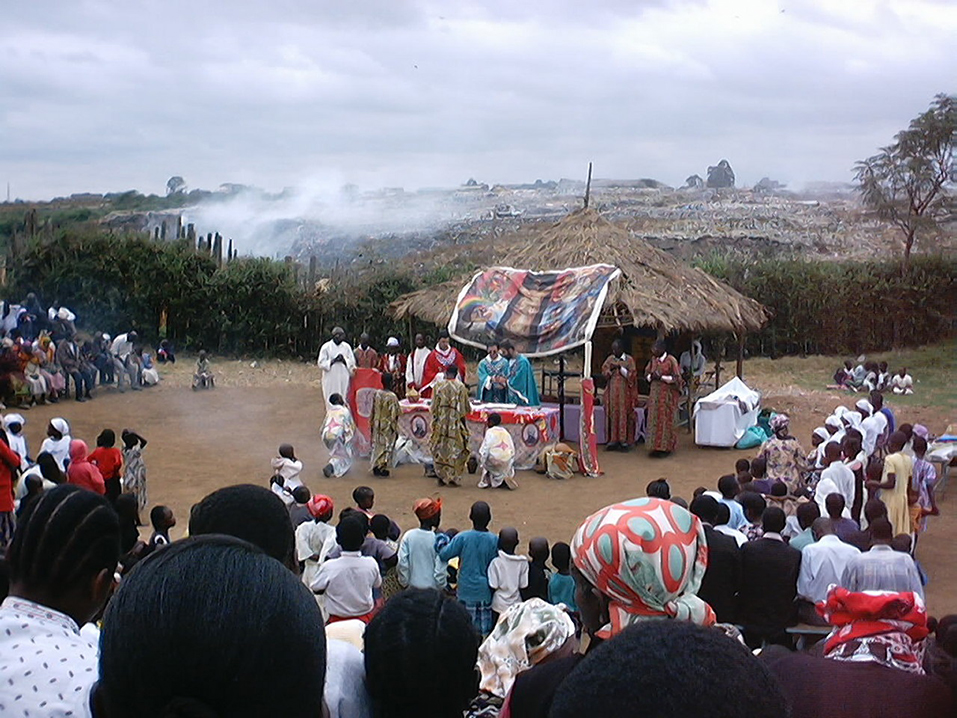
The difficult but significant years spent in the slums of Korogocho, in Nairobi (Kenya), were for me a school of humanity, spirituality and life lived to the full. There I encountered many men and women whose dignity was denied because they were either street children, prostitutes, waste collectors, alcoholics, drug addicts, or criminals…They were and they still are the “rejects of our society”. Yet, they are men and women like me with the same feelings and desires, albeit with different languages, cultures, traditions… They too, like me, are in search of the God of Mercy and Life. It is precisely my “going beyond” that gave me new life, saved me, enriched me and matured me as a man, as a religious consecrated person and as a missionary priest. Those eleven years made me grow significantly at the school of the poor!
It is precisely my “going beyond” that gave me new life, saved me, enriched me, and matured me as a man, as a religious consecrated person, and as a missionary priest.
God’s Grace is always great and if we let ourselves be guided, it allows us to enter a different dimension of our being and that of others. During my time in Korogocho and my sabbatical in Palestine, I experienced what it means that we are all brothers and sisters. The same applies to my seven years in South Sudan, where the absurd fratricidal conflict among the country’s leaders brought death to over 500 thousand people in five years of killings. The violence that erupted had not been seen previously, not even in the war with Islamic Sudan in the previous forty years. There are now millions of internally displaced people and millions more who had to flee their land looking for a safe haven.
In “Little Africa” in Italy
Afterwards, I spent one year in the United States at the United Nations headquarters and at the American Congress. It was a painful experience to realize how— in diplomatic circles at global level— decisions are taken which are totally removed from the reality of the peripheries, from the lives of billions of people who suffer, struggle and die due to violence, poverty and absurd wars. In this artificial context, I felt far removed, accustomed as I am to living in borderline situations, in the suburbs and in places of marginalization where I walk and live with people who are fighting daily “to live or simply to survive”.
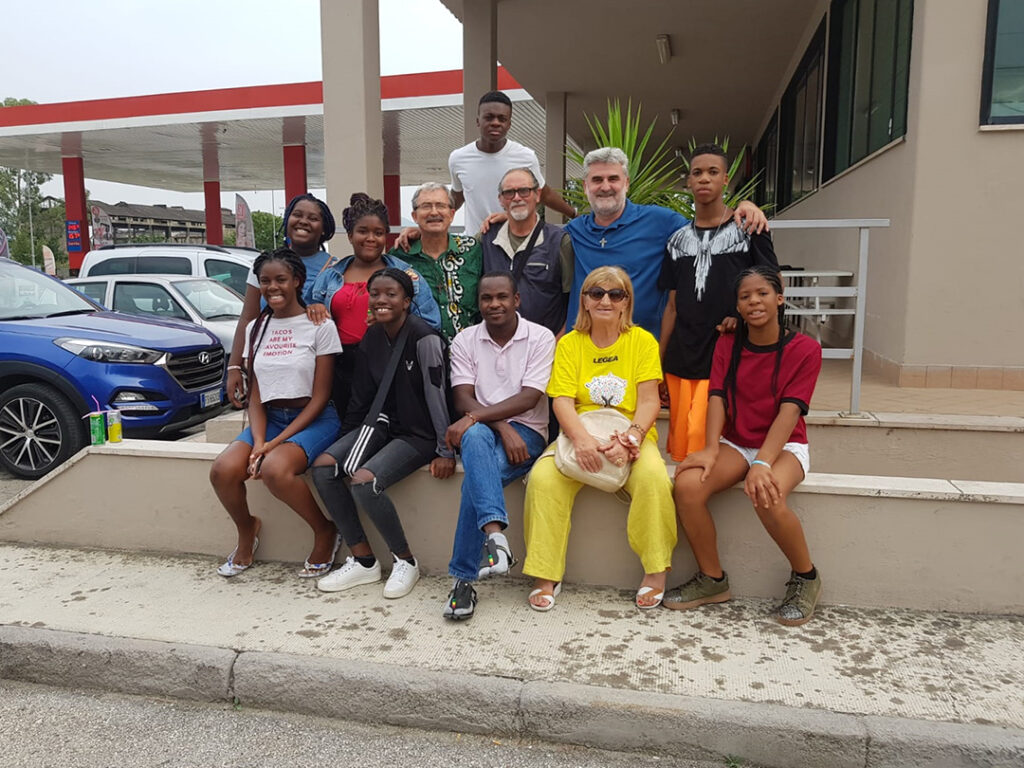

In “Little Africa” in Italy After that short spell in the USA, I asked my superiors to return to a border mission. This time I was sent not to Africa, but to the Northern Hemisphere, namely Italy, to a town called Castel Volturno in the south of the country. My ministry and place of mission today is to work with the mainly African migrants present here in this town. There are over fifteen thousand of them, the majority without regular documents. It is like a “little Africa” near Naples. I have been living here for the past five years and I have come to realize that the dynamics of those who live in the margins of society are very similar everywhere. This applies also to public institutions that allow situations of hardship and deprivation to grow, without realising that they can be explosive, even in the Northern parts of the world. Being in the midst of such marginalized areas, I have always experienced the most beautiful and profound sensation: feeling at home. I have always found a fraternal welcome, friendship and simplicity in human relationships as if Jesus was already there waiting for me. It is this kind of perception that prompts one “to go beyond”, to overcome the boundaries and walls that we humans are too often capable of erecting inside and outside of ourselves. Nonetheless, it is not easy to live and survive in places such as the slums or in the midst of civil wars and in various situations of violence and abuse. When faced with threats of violence or death, one is tempted to run away. But the Holy Spirit is there to give us new life and to strengthen us.
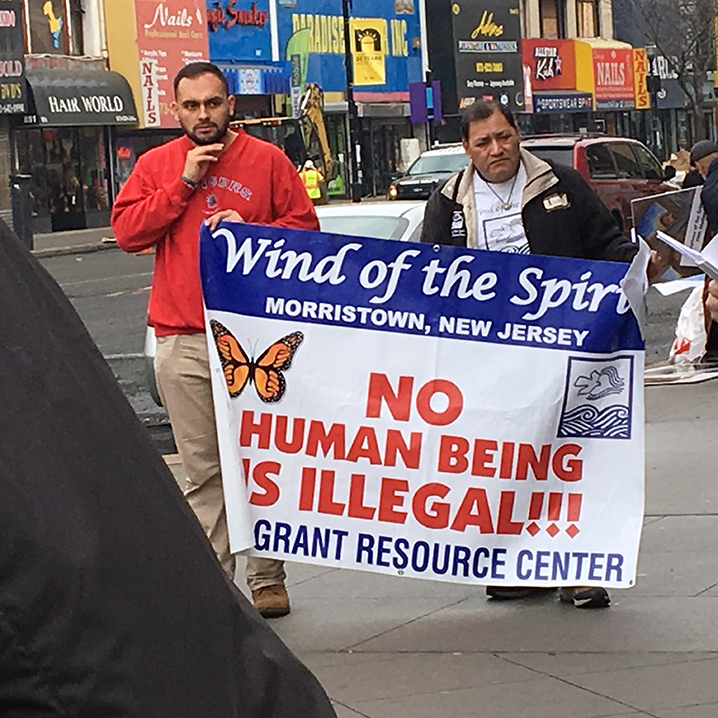
Pope Francis constantly encourages us to go out to the geographical and existential peripheries. From the periphery, the world appears clearer and truer but also more crude and unfair. When God regenerated creation and humanity, he chose to be born and to live among us on the outskirts of the Roman Empire in places of misery, exclusion and suffering, illness and loneliness. Yet these are also places of sincere hospitality and humanity.
We must not accept that the struggle for one’s life should end up destroying every sense of solidarity and human brotherhood.
As missionaries, we should be in the peripheries: the urban and the rural ones, as well as the social and existential ones. The best place to learn about life is at the “school of the poor”, looking at reality from the point of view of the last ones; it makes us understand what the truest needs are and uncovers false solutions to problems. While, on the one side, it helps us perceive concretely what injustice is, it shows us on the other side the way to eliminate it. Looking at reality from the point of view of the last ones, makes us understand how important it is to build communities where everyone feels recognized in their dignity as persons and as citizens, holders of duties and rights, called to link individual interests and the common good. Herein lies the conviction that what contributes to the good of all also contributes to the good of the individual.
These peripheral places are realities in which the availability and quality of services is severely lacking, and where new pockets of poverty and marginalization are constantly created. Using a metaphor: people living in cities and nations move in double lane highways: on one side, there are those who run swiftly with hyper-guarantees, and on the other side there are the poor and the unemployed, the immigrants, the rejected ones and those who have no one to rely on: they are stuck in the bottlenecks of traffic. We must not accept such inequalities which separate us from one another. We must not accept that the struggle for one’s life should end up destroying every sense of solidarity and human brotherhood. Indeed, we are called to build a better world here on earth, contributing to the establishment of the Kingdom of God, which is already present, yet not accomplished. It is the Lord who is inviting us to walk and go beyond.

